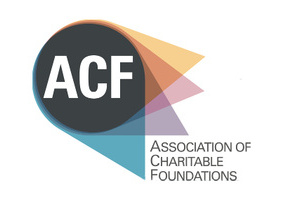As part of #Acevo30 Caroline Mason, chief executive of the Esmée Fairbairn Foundation, talks about how funders need to remain adaptable and how change happens best through collaboration.
Sir Horace Plunkett, pioneer of agricultural cooperatives, believed that people didn’t have to wait for life to be made better for them – they could do it themselves with a little help.
If ever there has been a time when this philosophy should resonate, then that time must be now. The world is dealing with fundamental disruptions on an almost weekly basis. As funders, how do we respond? With our knowledge, independence, skills and money, how can we empower people? How can we help those made expert by experience to be resilient and to own their own future? Research on funding practice over the last five years has consistently called for a change in practice. So, could we do with a little disruption?
'Five-year strategy'
Our current five-year strategy at The Esmée Fairbairn Foundation aims to do just that. We have borrowed some excellent practice from other funders and are experimenting with some ideas of our own.
We are increasing unrestricted core funding to enable organisations to thrive on their own terms rather than on ours. We believe that success is dependent on backing good people and we want to see more user-centred, impact-focused work.
We have dramatically reduced (and want to continue to reduce) the amount of bespoke reporting that we ask for. We believe that good governance is critical and that we should trust governance structures to have oversight of our money.
We have also increased the duration and flexibility of our funding, we have stopped one year “get to know you grants”, and we are trying to decrease our turnaround time for decision making to 100 days. We want to see successful, long-term impacts for complex and intractable problems and, in this volatile and fast-moving environment, we want the organisations doing the work to have a say in shaping the future.
We are experimenting with different types of funding such as repayable grants that sit alongside our conventional grant making and social investment. We are increasingly open to supporting social enterprises, community ownership or co-operative models and we provide additional support that enables the work we’ve funded to have a greater impact. This is because we know that organisations need help transitioning to cope with earned income, contract negotiations, business management and social investment.
We are working with other funders to try and become more than the sum of our parts by collaborating on data sharing, reporting, impact strategies and advocacy. We believe that change happens best through collaboration and co-design and that this must be as true for us as it is for those we fund.
We want organisations to make effective use of our money. This means not treating each organisation in isolation, so that they don’t need to spend precious resources servicing our individual requirements.
Foundations are all unique and we’re rightly proud of our independence and individual missions. But surely we can improve the way we work by really listening to those we fund. If we do, we can genuinely empower people to develop their own agency, build their local economies and make their voice heard in what is being called the fourth industrial revolution.
Caroline Mason CBE is chief executive at the Esmée Fairbairn Foundation. Previously, Caroline was chief operating officer at Big Society Capital and Charity Bank.
To celebrate its 30th birthday, Acevo asked 30 people in and around civil society for their thought-provoking insights. This article first appeared on Acevo's website here. Join the conversation at #acevo30.
Related articles












